FM Szijjártó believes that the Biden administration hinders the Paks NPP expansion

The foreign minister said that “it is a political revenge by the failed US Democratic administration” that the expansion of Hungary’s nuclear power plant at Paks had not been exempted from sanctions against Russia’s Gazprombank, but there is no reason for concern.
The foreign ministry cited Péter Szijjártó as saying in New York that the outgoing US administration’s recent one-sided steps made energy supplies for the entire region more difficult, and the sanctions against Gazprombank resulted in a difficult situation to those countries that “do not represent mainstream politics, but represent conservative, patriotic, national policies, and their policies much rather coincide with the incoming US president’s”.
“The US government obviously knew precisely well what effects these measures would have, and they knew precisely well which countries they cause problems to,” he added.

“But everyone can rest assured, because we are eliminating these risks. We have partly already taken the necessary legal, technical and technological steps, and will take more in the upcoming period. Hungary’s energy supplies are secure and will be secure as long as we are in government,” he said.
Read also:
Russia’s decision: Hungary and Slovakia on the list of unfriendly countries
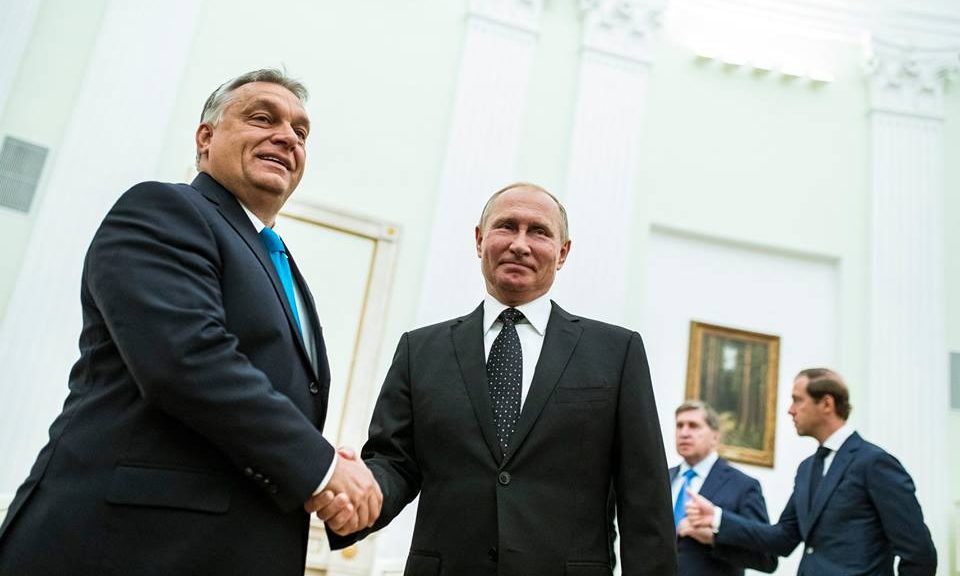
The Russian government has decided to keep Hungary and Slovakia on its list of “unfriendly” countries, citing insufficient grounds for their removal despite their willingness to maintain political dialogue with Moscow, the Russian Foreign Ministry confirmed to the daily Izvestia on Wednesday.
The list, introduced in March 2022 following the onset of the war in Ukraine, includes nations deemed to have taken hostile actions against the Russian Federation, including imposing sanctions. Hungary and Slovakia, as EU and NATO member states, were added to the list for adhering to bloc-wide anti-Russian sanctions, according to Pénzcentrum.

Russia keeps Hungary on list of “unfriendly countries”
The Russian Foreign Ministry noted that while Hungary and Slovakia strive to preserve strategic trade and economic ties with Russia and support bilateral political dialogue, their commitments to EU and NATO policies force them to comply with restrictive measures against Moscow. This allegiance to Western discipline leaves no justification for revising their current status.
“In accordance with the Russian Federation government’s decree No. 430 of March 5, 2022, Hungary and Slovakia were listed as countries that have committed unfriendly actions against Russia, as well as its legal entities and citizens. Despite efforts to sustain valuable outcomes in strategically important areas of trade and economic cooperation, their alignment with EU and NATO obligations, including anti-Russian restrictions, precludes any status changes,” the ministry stated.
Russia’s list of unfriendly countries, which originally emerged in response to international sanctions following its invasion of Ukraine, currently comprises 46 states. These include all 27 EU member states, along with nations such as the United States, Canada, the United Kingdom, Japan, Australia, South Korea, Switzerland, and Taiwan.
The Russian Finance Ministry also reiterated to Izvestia that Hungary and Slovakia’s participation in the EU’s sanction mechanisms justified their inclusion on the list. The ministry highlighted that the list serves as a reflection of countries enacting unilateral restrictive measures against Moscow.
Read also:
Pro-peace shift in Europe attributed to Hungary’s EU presidency, official says
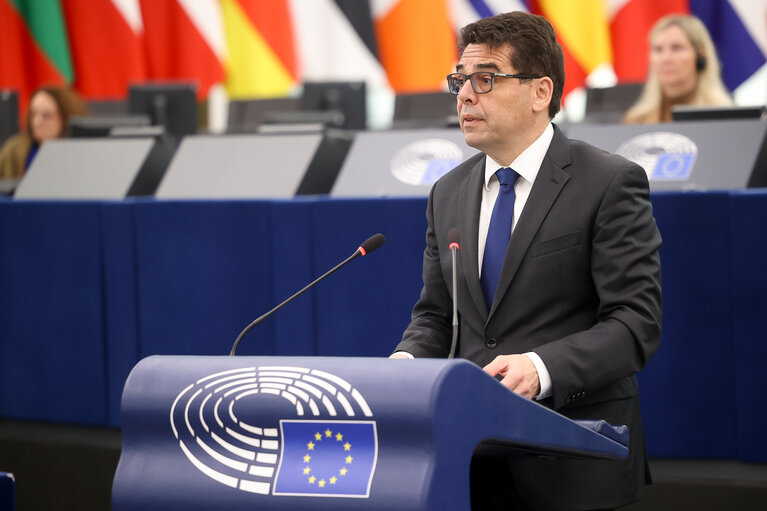
Although the majority of countries still belong to the “pro-war camp” in Europe, more and more countries have started to endorse peace and a ceasefire thanks to the consistent Hungarian standpoint represented by Hungary’s current EU presidency and the Hungarian prime minister’s peace mission, a government official for EU affairs said in Strasbourg on Wednesday.
The issue of war and peace is the main topic in Europe today, with “the Russia-Ukraine war casting a shadow on every affair not only in Brussels, but in the whole of Europe,” Barna Pál Zsigmond, parliamentary state secretary of the EU affairs ministry, said on the sidelines at a European Parliament plenary session.
“We Hungarians have kept saying ever since the war broke out that we have a pro-peace stance, that we want to have peace,” he said, adding that at the beginning of the presidency, only Hungary and the Vatican had belonged to the “pro-peace camp”.
“At that time, the word peace could not be uttered, and those who spoke about peace were immediately stigmatised,” the state secretary said, noting that “in a shift since then, more and more [countries] have realised that something must be done … and that it is a common interest to have peace next door”.
He said the fact that US President-elect Donald Trump is also an advocate of peace helped give hope for a ceasefire in the coming period which could be followed by peace.
“A primary priority of the Hungarian presidency ending this month has been to enhance the EU’s competitiveness,” he said, highlighting the adoption of the Budapest Declaration which defines concrete steps, deadlines and tasks for the European Commission.
“Under the Hungarian presidency, a breakthrough has been achieved concerning the issue of migration; it can now be freely said what we have been saying from the start, which is that the EU’s external borders must be protected and only those must be allowed to enter the EU who are indeed entitled to asylum,” he said.
Zsigmond called the full integration of Romania and Bulgaria with the EU Schengen system an outstanding result, highlighting the integration’s national strategic importance in terms of Hungarian-Romanian relations. “This means that Hungarians in Transylvania can from now on travel to Hungary without needing a document.”
“The border between Romania and Hungary has finally disappeared,” the state secretary said.
Read also:
New survey: How much do Hungarians trust Trump to end the Russia–Ukraine war?

Fully 77 percent of Hungarians thinks that president-elect Donald Trump stands a good chance of ending the war in Ukraine in 2025, a survey published by pro-government Századvég on Tuesday has shown.
Prime Minister Viktor Orbán met Ukrainian President Volodymyr Zelensky, Russian President Vladimir Putin, Chinese Presidenet Xi Jinping and Trump, then the Republican presidential nominee, in July, “with the aim of gauging the stance of the warring parties and promoting peace”, the think-tank said in connection with the survey, conducted with a sample of 1,000 people.
The “peace mission” had been harshly criticised by the Brussels elite, Századvég said.
“The survey shows that, unlike Brussels leadership, the Hungarian public backs Orbán’s efforts to hasten the end of the war,” the think-tank said.
Fully 68 percent of respondents agreed that Orbán promoted ending the war. “Thanks to the pro-peace stance of Hungary, 74 percent opposes the US government and certain EU member states shipping long-range missiles to Ukraine, it said.
Further, 77 percent of Hungarians considered there was a realistic chance that Trump would successfully end the conflict in 2025, it added. Fully 51 percent of respondents had a positive view of Trump, the survey showed.
Unarmed Ukraine against the Russians?
It is important to underline that the Hungarian government has been saying for years that Ukraine should not be given arms, which would have meant that Russia would have been crushing our eastern neighbour.
Even yesterday, the Hungarian Foreign Minister said that although the Russians were attacking, the Ukrainians should not be given weapons to defend themselves. Related article: Orbán cabinet did everything to stop Ukraine getting aided arms shipments, but failed – details here
Several analysts have recently said that Trump wants peace, but it may be in the US’s interest not to strengthen Russia by doing so. Yet, at the moment, aggressor Russia is attacking in force, and Ukraine still needs a lot of help to keep up the attacks. The idea of peace is also very different for Ukrainians, whose territories are occupied, and for other countries that are watching from the outside and whose territorial integrity is not at stake.
The results of the current public opinion poll show very clearly that the Hungarian government’s powerful communication has reached the electorate, and they have taken it on board.
As we wrote yesterday, the Budapest-Kyiv train service has been restored; details are HERE.
Orbán cabinet did everything to stop Ukraine getting aided arms shipments, but failed

The Hungarian government has refused to contribute 6.5 billion euros of compensation to European Union member states that have shipped arms to Ukraine, Péter Szijjártó, the foreign minister, said in Brussels on Monday.
Szijjártó told a press conference after a meeting of the EU Foreign Affairs Council that Hungary raised the sole veto to the payment of approximately 6.5 billion euros from the European Peace Facility to member states that have supplied weapons to Ukraine, thereby withholding around 77 million euros of Hungarian money. He added that neither Hungary supplied weapons nor contributed to the arms shipment. But if the other EU member states “want to do so voluntarily, Hungary will not stand in their way”, he said.
He added that Hungary will not give a nod to relocating an EU training mission coordination unit to Kyiv or the deployment of EU advisors to Kyiv to coordinate the reform of the Ukrainian security sector. Szijjártó said deploying people to Kyiv for the purposes of training, coordination, and advice as part of an EU program was “extremely risky” and risked escalation. Regarding the 15th sanctions package against Russia, which allows Hungarian oil and gas company MOL to export products derived from Russian crude oil, the minister called the exemption “important”. “As we managed to strip out the crazy ideas … we did not veto it in the end,” he said. Commenting on the attempt to put Patriarch Kirill on the sanctions list, he said punishing church leaders “should be avoided at all costs”, adding that all hopes for peace would be lost if lines of communication involving churches were cut.
read also: Hungary and Ukraine propose EUR 1 billion EU-funded infrastructure plan to boost connectivity
Also, he said the EU had tried to put Russia’s UN ambassador on the list, “which is strange as the UN is the last port of call for political consultations…” “We vetoed this and also signaled that we won’t at all support the sanctioning of the Russian Olympic Committee. Mixing sports and politics … is unacceptable.” Szijjártó said a new reality had emerged in the war in Ukraine owing to the election win of Donald Trump and to Russian military victories on the battlefield. Far from being “Putinist propaganda,” he added that even his Ukrainian counterpart had confirmed the facts on the ground. He said that, “sadly”, this new state of affairs had been ignored in Brussels as most EU member states were still pushing a “failed war strategy” and feeding the risk of escalation. Regarding a Christmas truce, he said no one at today’s council meeting had backed a ceasefire “that would save lives”. He added that some at the meeting had even spoken against the proposal of a truce. Szijjártó called his Polish counterpart’s suggestion that Ukrainian men of military age living in the EU should have their social support withdrawn “harsh”.
read also: A surge of Ukrainian refugees: the disappearing Hungarian identity in Transcarpathia
Hungarian foreign minister: Not even the approaching Christmas holidays can dampen the warlike mood in Brussels

“Not even the approaching Christmas holidays can dampen the warlike mood in Brussels,” the foreign minister said on Facebook on Monday.
Péter Szijjártó posted his remarks ahead of the last meeting of his European Union counterparts in Brussels this year, saying proposals on the agenda for the meeting reflected that “the majority still does not see the new realities”. “While an opportunity for achieving a ceasefire and exchanging prisoners of war has been tabled, they still want to reallocate over 6 billion euros for weapons to Ukraine,” Szijjártó said.
“They are pressing Ukraine to send 18-year-old boys to the front, and sanction Georgian officials just because Georgian voters dared to elect a sovereigntist government,” Szijjártó said. The minister said he anticipated “a great fight” at the meeting, but added that “the Hungarian government insists on its pro-peace stance: Ukraine calls for a ceasefire rather than more weapons.”
FM Szijjártó: Few countries did more than Hungary for peaceful settlement of Russia-Ukraine conflict
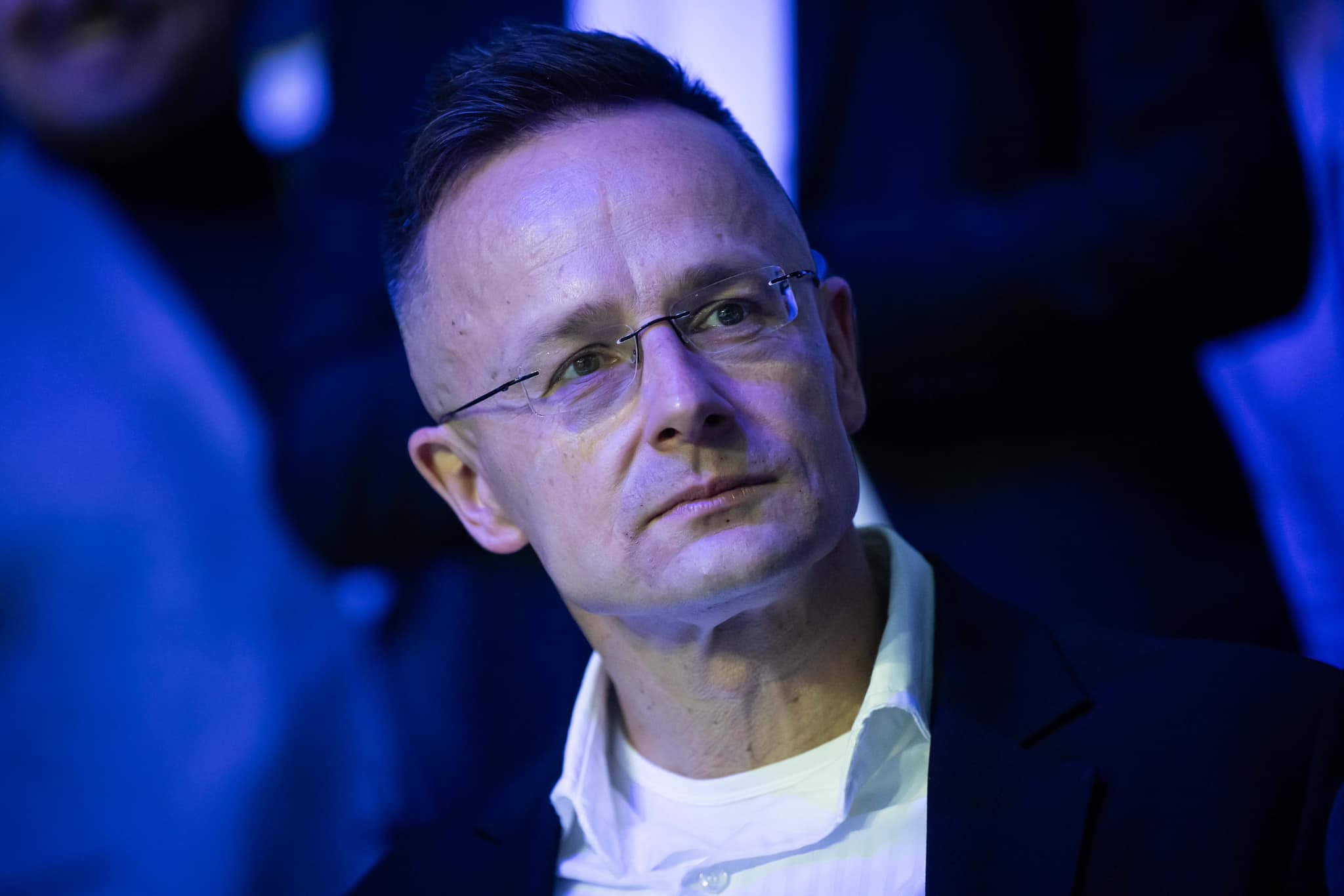
There are very few countries that have made more efforts than Hungary for a peaceful settlement of the Russia-Ukraine conflict over the past one thousand days, the foreign minister said on Sunday.
The war has been going on for more than a thousand days and Hungary’s position has not changed ever since it broke out, Péter Szijjártó told public broadcaster Kossuth rádió. Hungary’s position, which has since been proven true, is that this war has no solution on the battlefield where there is only death, suffering and more destruction, he said.
He said that the war claiming human lives in the ranges of a million had not opened the eyes of everyone, adding that weapon deliveries had not changed the balance of power. The Russian army is forging ahead and occupying more and more territories, Szijjártó said.
“The only solution is to be found solely at the negotiating table; there must be talks, but for peace talks a ceasefire in needed first,” the foreign minister said.
Szijjártó noted Prime Minister Viktor Orbán’s proposal of a ceasefire and an exchange of prisoners in humanitarian steps with the upcoming days of the Christmas celebrations taken into consideration.
He also noted the prime minister’s phone conversation with the Russian president earlier this week that lasted for more than an hour.

Szijjártó said that as Hungary’s foreign minister he had informed his Ukrainian counterpart as well as the head of the Ukrainian president’s office [about that phone conversation] asking them to arrange a phone conversation between Viktor Orban and the Ukrainian president which he said was rejected “in a bit uneasy, yet cultured manner”.
“Hungary has tried to do everything [possible] under its mission for peace in the past half year, even more than what could be or would have been expected from a country this size,” Szijjarto said.
“We have made every possible effort under our EU presidency in the past six months to use the presidency for a good cause, for a ceasefire, for starting peace talks,” Szijjártó said.
Talking about a threatening email received by Hungary’s embassy in Paris on Saturday, the minister said that it had been sent from a country neighbouring Hungary and contained a picture of a bomb.
The minister said his colleagues in Paris had immediately notified the foreign ministry’s security centre. French authorities arrived at the scene quickly and very professionally with appropriate technology and search dogs. As no explosive device was found, the embassy staff returned to their offices to continue their work, Szijjártó said.
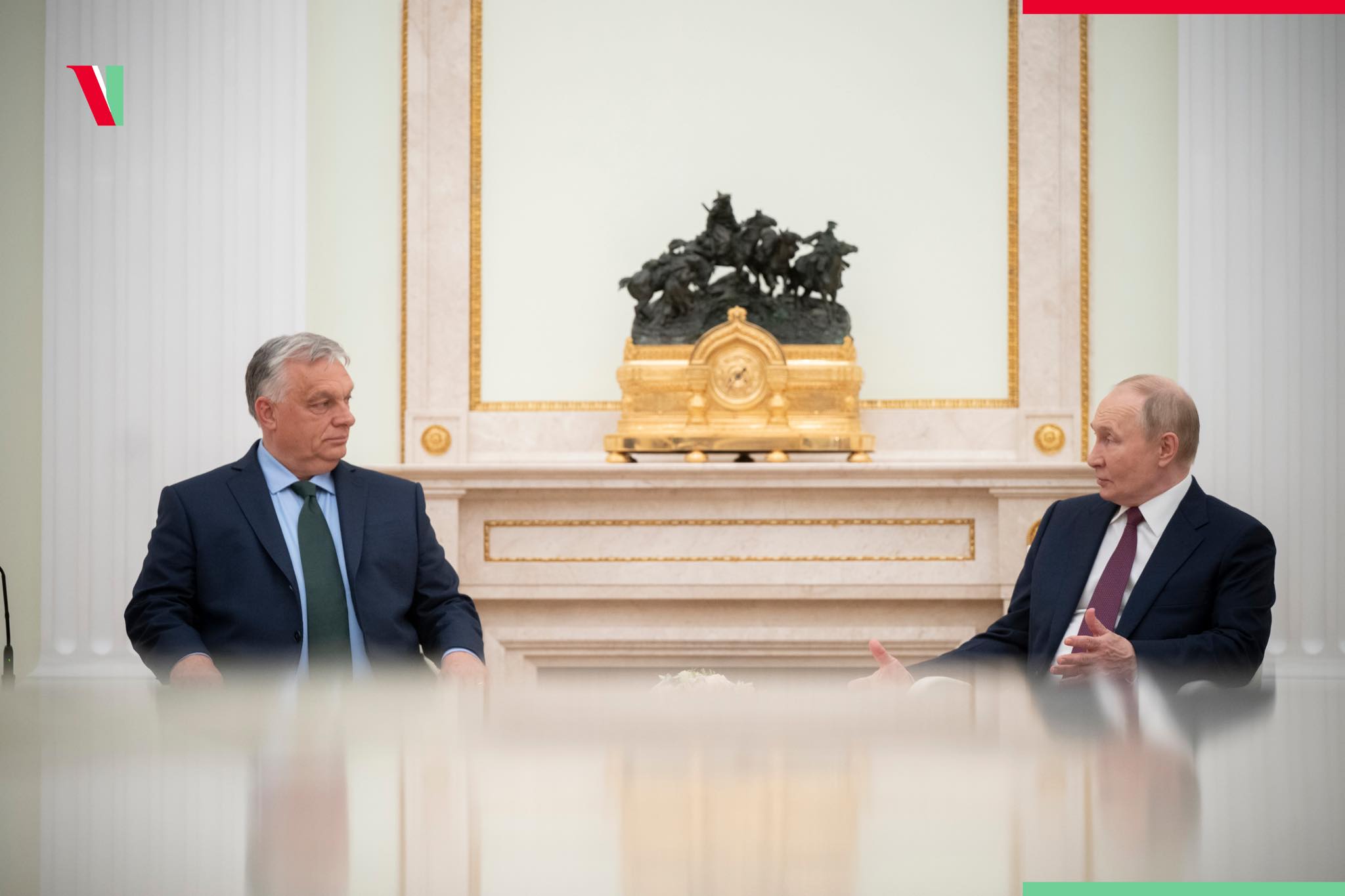
He said that in his assessment “the world is in an especially dangerous situation today”, with armed conflicts going on at several places, terrorist attacks taking place, terrorist organisations carrying out coup attempts”. “In this situation every threat needs to be taken seriously,” the foreign minister said. “And we have done just that, as the safety, health and the life of our colleagues is most important to us,” he said. He also emphasized that “everything at the embassy has returned to normal,” adding that security regulations had been reinforced.
On another topic, Szijjártó called it a step “less worthy of allies” that the United States had put Gazprombank on a sanctions list as “it was clear which countries in the central European and south-eastern European regions buy energy from Russia due to physical, infrastructural and geographical realities, and it is also clear that they pay through Gazprombank“.
The minister said they had worked hard with the Slovaks, Serbians, Turks and Bulgarians in recent weeks to find a legal solution that will continue to guarantee the security of their energy supply without violating US sanctions, and they have succeeded.
Answering questions about how they managed to disperse a false media report that Bashar al-Assad’s airplane had landed in Budapest, he said that “it was a very rough situation” and it was incredibly dangerous “to involve Hungary in such a red hot conflict”.
“It is possible that this situation arose as part of an orchestrated secret service operation that posed an extraordinary threat to Hungary, so I believe that it is necessary to investigate as thoroughly as possible where this started, who participated in it, and those who participated why they did so.
“Putting Hungary in danger cannot go unpunished,” he said.
Read also:
Russian missiles over Hungarian towns and villages: is the war in Ukraine escalating?
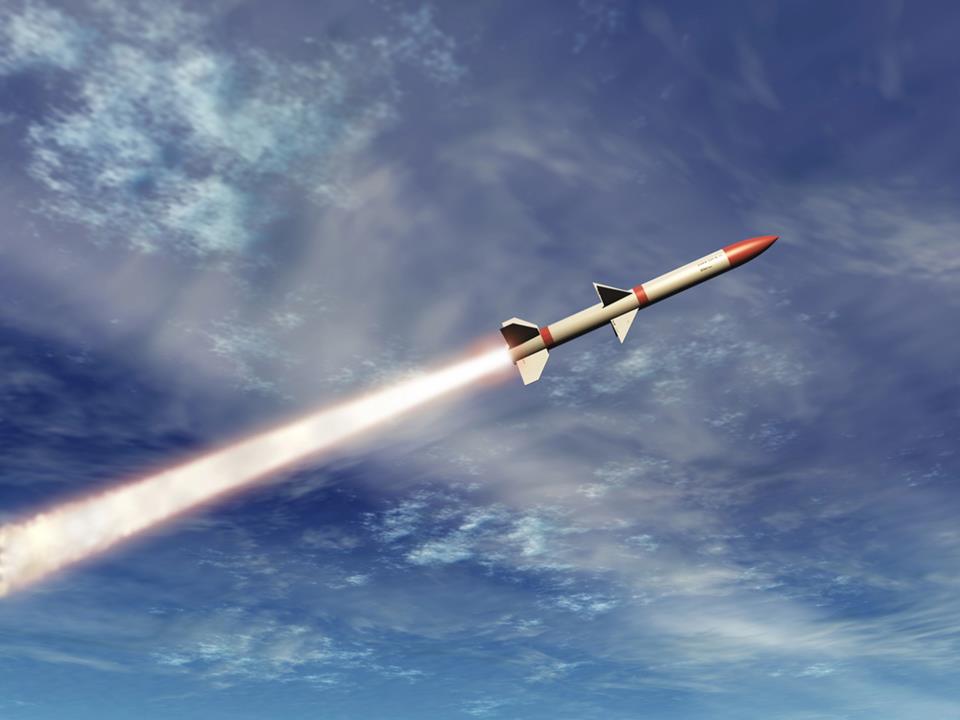
PM Viktor Orbán proposed a ceasefire this week in Ukraine for the Christmas festivities and later added that Kyiv “refused to accept it”. Now, it seems the Russians tried to escalate the war even to Hungarian-populated territories. Kárpáti Igaz Szó, a Hungarian newspaper in Transcarpathia (Kárpátalja ), the Westernmost region of Ukraine, wrote about another Russian missile attack affecting the region, populated by at least 100,000 Hungarians. The last similar attack took place in November. Before that, only in February 2022 did the Russians carry out acts of war in Transcarpathia.
Russian missiles over Transcarpathia, the home of at least 100,000 Hungarians
According to Kárpáti Igaz Szó, another massive Russian missile attack took place in Transcarpathia this morning when Russians targeted the energy infrastructure of the country. Two missiles flew into the airspace of Transcarpathia during the attack.
Miroslav Bilecky, the public administration head of the region, told the newspaper that air defence forces shot two Russian missiles over Transcarpathia today. Fragments of the first one touched ground near Munkács, where thousands of Hungarians live, while the other landed near Várkulcsa.

The local newspaper has not reported casualties or significant damage. A journalist from Ungvár (Uzhhorod) said the type of the weapon was the Kh-101 cruise missile. Authorities are searching for the fragments of the missiles.
The last time Russia’s war in Ukraine affected Transcarpathia was on 17 November, when the air defence also shot Russian missiles that fell near Munkács and Rahó.
Transcarpathia was not involved in the war
PM Viktor Orbán talked this morning in an interview about a Hungarian ceasefire initiative for the Christmas festivities and an exchange of POWs. He suggested President Putin accepted the offer, but Kyiv has not given the green light. The Hungarian prime minister remained hopeful that the 20 January inauguration of Trump will bring ceasefire and peace in Ukraine.
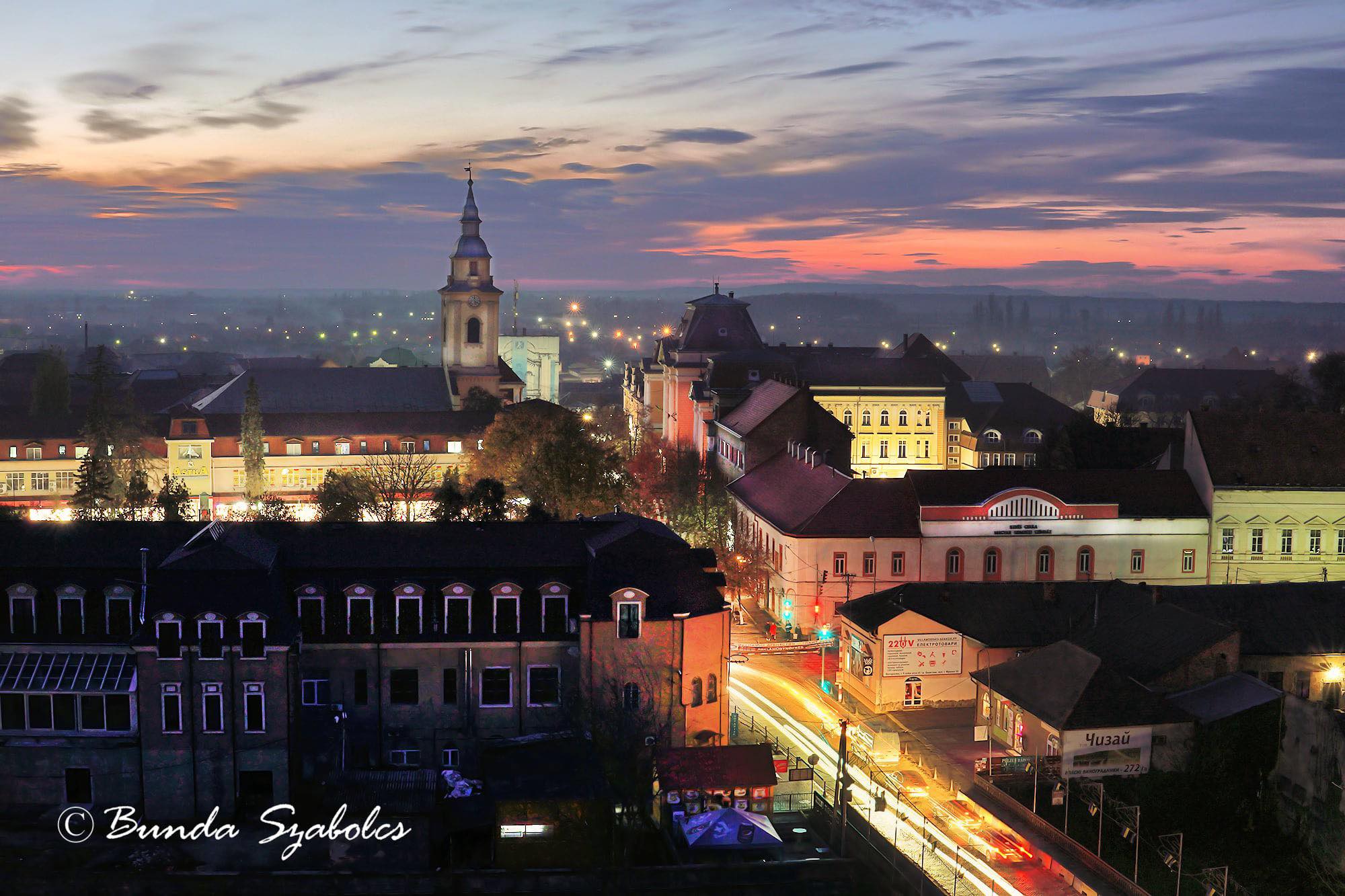
Transcarpathia was not among the primary or even secondary targets of the invading Russian forces in the last more than 1,000 days of war. A missile attack targeting Transcarpathian places was conducted only back in February 2022, which is why there is no curfew in Transcarpathia, which is exceptional among the Ukrainian regions.
In 2001, the first and only Ukrainian census found more than 150,000 Hungarians in Transcarpathia. As all Hungarian communities beyond the borders of Hungary in the Carpathian Basin, the number of Transcarpathian Hungarians has fallen steeply in the past decades. A 2017 survey found approximately 131,000 Hungarians in the region. Currently, estimates talk about 100,000 Hungarians.
Government hopes common sense prevails for Christmas ceasefire
The Hungarian government hopes that “common sense and humanity will prevail” in connection with the proposed Christmas ceasefire and prisoner exchange in Ukraine, the foreign minister said in Sofia on Friday. Péter Szijjártó said the war has been under way for more than a thousand days in the neighbouring country, and Donald Trump’s victory in the US presidential election had given new hope to the world that the war could end. “Christmas is approaching, and when we talk about Christmas, peace gets special emphasis, which is why Hungarian diplomacy — with the prime minister surely taking the lead — took some serious steps recently in order to improve the situation for people living in the affected area, even before the war finally ends,” Szijjártó said.
“We have therefore proposed a Christmas ceasefire and a large exchange of prisoners, so that more people can celebrate Christmas at home and in peace even in that part of the world,” he added. “We presented this proposal to President Putin and and to several Russian government officials who received it basically in a positive and open manner, demonstrating an openness to considering the proposal and carrying out the related talks,” Szijjártó said.
“Unfortunately, the president of Ukraine rejected the opportunity to negotiate … but we are still hoping that common sense and humanity will prevail, and as many people will celebrate Christmas in peace, calm, safety and at home, also in the eastern part of Europe, as possible,” he added. Commenting on the situation in Syria, he said Hungary had a vested interest in the stability of the Middle Eastern country because if it faltered, a new wave of illegal migrants may be triggered.
Hungary will make every effort at international platforms in order to restore stability and protect Christian communities, so that extremist organisations and ideologies do not gain control in the area, he added. He also said that in such situations political players must ensure that they make statements in a responsible manner because fake news could have tragic consequences. “Unfortunately, several persons from the worlds of media and politics acted very irresponsibly, which proved that they are unfit to fulfil more serious positions,” he said.
“To give the impression that the Syrian president was in Hungary after a series of events carried out with the involvement of terrorist organisations and extremist groups posed very serious risks to Hungary, and to Hungarian people regardless of where they lived in the world,” he added. “I believe that those who spread such fake news solely for political sensation-seeking and profiting, have proved that they were not suitable for any serious position, and if they were to fulfil a serious position, they would pose a very serious danger to Hungary and to the Hungarian people,” Szijjártó said.
Read also:
- A surge of Ukrainian refugees: the disappearing Hungarian identity in Transcarpathia – read more HERE
- FM Szijjártó continues peace mission: he negotiated with Lavrov in Malta
Featured image: depositphotos.com
Hungarian FM Szijjártó: Hungary, Turkiye outline ‘new strategic milestone’ in bilateral cooperation

Cooperation between Hungary and Turkiye is better and more mutually beneficial than ever, and the two countries have also outlined a new “milestone” target for the coming years, Péter Szijjártó, the minister of foreign affairs and trade, said in Ankara on Thursday.
Hungary–Turkiye cooperation
Prime Minister Viktor Orbán had talks with President Recep Tayyip Erdogan today as part of the Hungarian peace mission, “which is especially important as the only really successful attempt at mediation in the war in Ukraine in the past thousand days is connected to Turkiye,” Szijjártó said, according to a ministry statement.
“Hungary has stuck to the same stance for a thousand days. It has become certain that there is no solution on the battlefield, that a settlement is possible only at the negotiating table, and that we need a ceasefire and peace talks as soon as possible,” he said.
At the meeting, they welcomed the unprecedented heights of bilateral cooperation which, he said, benefited both countries.
Meanwhile, the two countries reached a “strategic milestone” this year, when Hungary became the first non-neighbouring country to which Turkiye exports natural gas, Szijjártó said, adding that Hungary has already bought 275 million cubic meters.
“Today, we agreed to maintain that cooperation, and Hungary will receive natural gas next year too,” he said.
Turkiye and Hungary have also outlined a new milestone, to be achieved in the coming years, he said. “An agreement was made under which the leading oil companies of Hungary and Turkiye, MOL and TPAO, will start a new strategic cooperation that will enable MOL to be involved in exploring and tap new oil fields in Turkiye and also open an opportunity to the Turkish oil company to enter the Hungarian market,” he said.
“This is the new strategic goal we must achieve in the coming years,” he said.
Meanwhile, bilateral trade has hit new records, he said. “Cooperation also extends to new sectors, with cooperation between banks and in railway construction also on the list.”
Regarding energy security, Szijjártó said Turkiye was an important contributor to securing Hungary’s natural gas supply.
“More than 7 billion cubic meters of gas has arrived in Hungary through the Turkish Stream pipeline via Turkiye. This is a good deal more than the total [deliveries] last year. This year has shown that the Turkish Stream pipeline is capable of delivering more than 20 million cubic meters a day, which is good news regarding the energy security of the coming period,” he said.
Turkiye and Hungary also agreed on coordinating the measures they will have to take due to the US’s decision to put Russia’s Gazprombank on the sanctions list, Szijjártó said.
“Cooperation between Hungary and Turkiye continues to be very beneficial … and in view of current processes and trends, we can say that next year, Hungary will profit from it even more; and so will Turkiye,” he said.
Read also:
PM Orbán: Hungary proposed Christmas ceasefire, Zelensky rejected it

“At the end of the Hungarian EU presidency we made yet another effort for peace,” Prime Minister Viktor Orbán said in an entry posted on X on Wednesday evening.
Orbán proposes Christmas ceasefire
“We proposed a Christmas ceasefire and a significant exchange of prisoners of war. Regrettably, Ukrainian President Zelensky point-blank rejected this (proposal) … We have done what we were able to,” Orbán wrote.
Prior to the post, Zelensky voiced resentment that Orban had made a phone call to Russian President Vladimir Putin. Zelensky said peace and security in his country required “decidedness by the US, unity in Europe, and commitment by all partners in line with the United Nations Charter, its objectives and principles”. “No one should boost (their) personal image at the expense of unity” but focus on Europe’s common success, Zelensky said. “There can be no discussions about the war that Russia wages against Ukraine without Ukraine,” Zelensky said.
“We all hope that PM Viktor Orbán at least won’t call Assad in Moscow to listen to his hour-long lectures as well,” the Ukrainian president added.
Read also:
Hungarian FM Szijjártó: Hungarian government proposed Christmas ceasefire, exchange of POWs

Hungary’s government has proposed a Christmas ceasefire and prisoner exchange in Ukraine, but the Ukrainian leadership has rejected it, Foreign Minister Péter Szijjártó said in Budapest on Wednesday.
Szijjártó talks about Hungary’s proposal
Szijjártó said that after Prime Minister Viktor Orbán tabled the proposal during a phone call with Russian President Vladimir Putin, the Hungarian government contacted Ukrainian Foreign Minister Andrii Sybiha and Andriy Yermak, the head of the Ukrainian presidential office. “The communication channels are open in every direction, and we would like to keep them that way, as that is the only hope for peace and for peace talks,” Szijjártó said, according to a ministry statement.
“What a shame that President Zelensky, in a public post on X a few minutes ago, excluded and rejected everything we talked about in the morning,” Szijjarto said.
“We have done everything in our power. The Hungarian peace mission was a constant theme of the Hungarian presidency, and we hope that peace will soon return to the region. It is obvious that we will have to make strenuous efforts for that,” he said.
Meanwhile, Szijjártó said he also had talks with Alexandr Novak, the Russian deputy prime minister for energy affairs, and “clarified legal solutions that will ensure preserving the Hungarian-Russian energy cooperation, and so Hungary’s energy security.”
Read also:
FM Szijjártó: Hungary and Russia are committed to maintaining energy cooperation
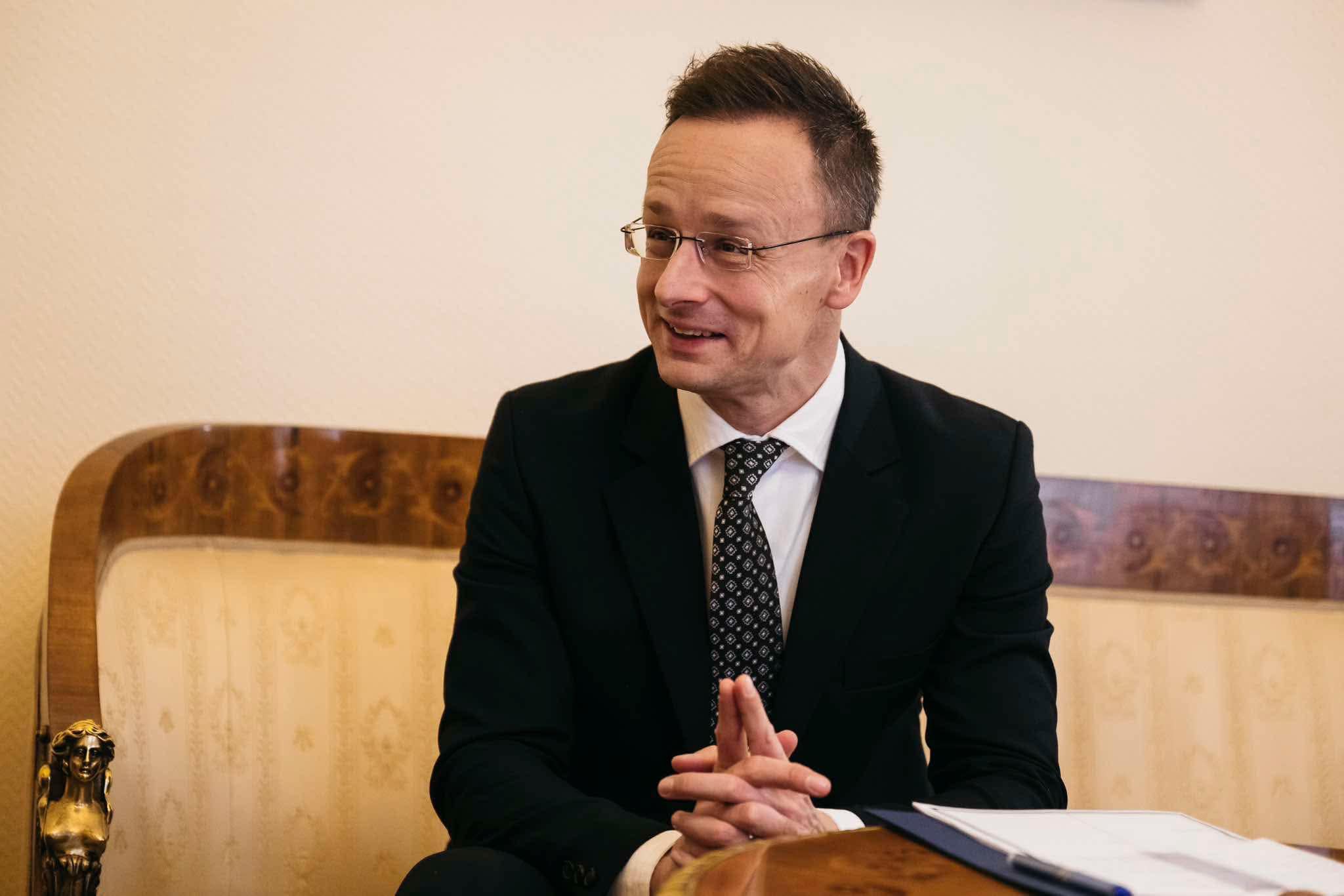
Prime Minister Viktor Orbán and President Vladimir Putin have held extensive phone talks and both are in full agreement that everything must be done to maintain energy cooperation, Péter Szijjártó, the foreign minister, said on Wednesday.
Hungary’s energy security, the war in Ukraine, and developments in Syria were discussed during the talks lasting more than an hour. Szijjártó said the current US administration had made it hard for some central and south-east European countries, including Hungary, to make payments for natural gas and nuclear fuel by placing Gazprombank under sanctions.
Slovakia, Serbia and Turkey also face similar challenges, and consultations with these countries, too, were underway, he said. Szijjártó said Orbán and Putin had agreed that all avenues must be explored exhaustively “to eliminate this problem”. Putin made it clear that Russia is committed to maintaining energy cooperation and guaranteeing Hungary’s energy supply, he said, adding that there was nothing on either Hungary’s or Russia’s part to prevent a solution from being found.
He said a solution had already been found for fuel rods for Hungary’s nuclear power plant, and payment methods for the Paks expansion development, as well as for natural gas trade, were being worked out. Szijjártó noted that he had spoken with Alexei Likhachev, the chief executive of Rosatom, about speeding up the Paks project, and he would also hold a meeting with Alexander Novak, the Russian deputy PM in charge of energy affairs, in the afternoon.
Meanwhile, regarding Ukraine, the minister stressed the importance of keeping diplomatic and communication channels open in the current unprecedentedly dangerous period. Hungary, he added, has maintained its peace stance for a thousand days, and Orbán had spoken at length with Putin today on achieving a sustainable peace settlement.
Szijjártó said Putin had mentioned obstacles to peace such as the Ukrainian law that “essentially prohibits the current presidential administration from negotiating peace” with Putin. He noted that Orbán visited Florida this week to meet Donald Trump and also met the pope at the Vatican as part of efforts towards forging a peace settlement. “[We] will continue the Hungarian peace mission, seeking the fastest path to peace in order to save lives,” he said.
Regarding Syria and the Kremlin’s position, he said Putin had indicated an interest in ensuring stability and peace in the Middle East “so that extremist ideologies and political movements” cannot further undermine security there. Hungary, he added, was focused on the situation of Christian communities and would continue to provide them with the humanitarian support necessary.
Read also:
Orbán and Putin phone call: Bilateral cooperation, Ukraine, and Middle East tensions
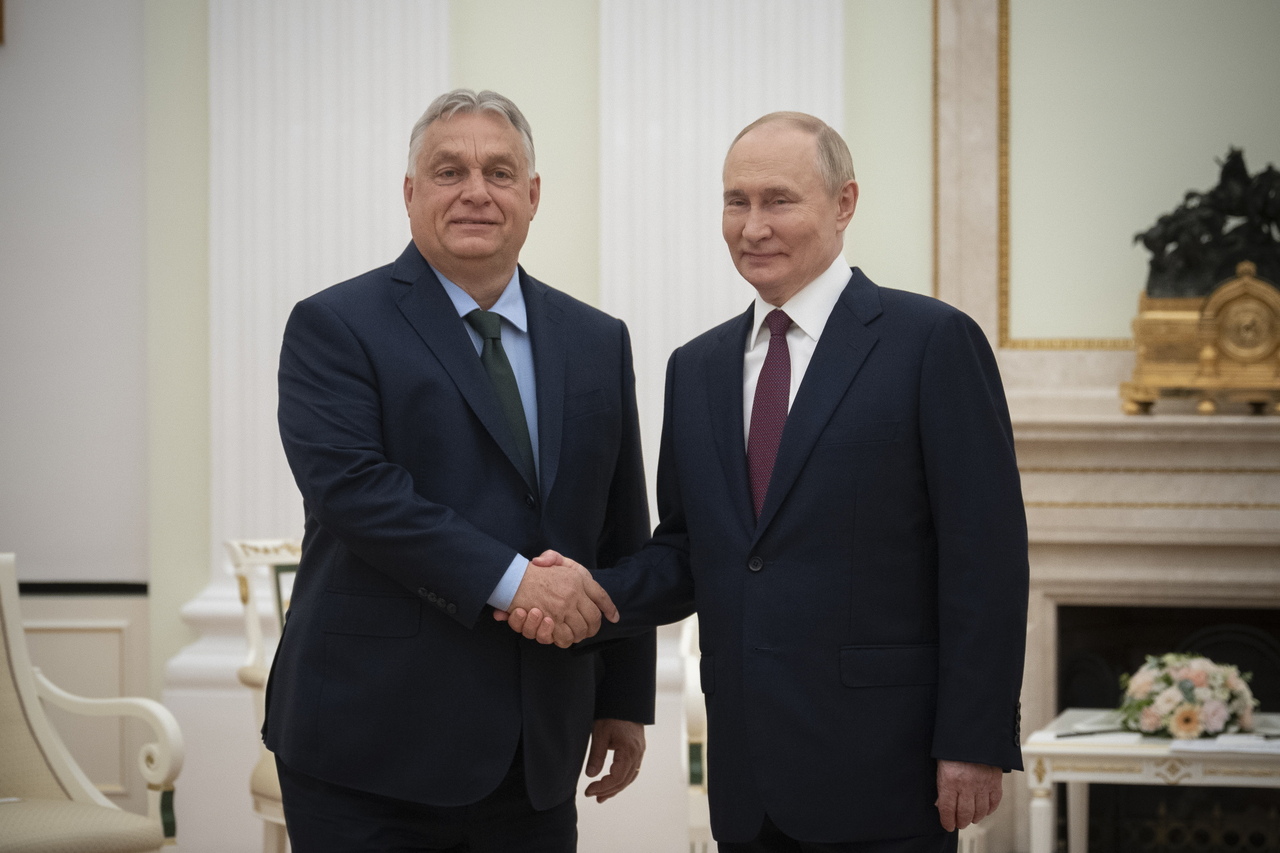
Prime Minister Viktor Orbán spoke with Russian President Vladimir Putin by phone on Wednesday, the PM’s press chief said in a statement.
The two leaders discussed topical issues concerning the development of bilateral economic and trade cooperation, with a focus on further support for mutually beneficial energy projects, Bertalan Havasi said.

The two leaders also discussed the situation in Ukraine, and the prime minister told Putin that he had an interest in seeking a political and diplomatic solution to the crisis, given his relations with Western leaders. Putin assessed the current status of the situation regarding Ukraine.
Orbán and the Russian President also discussed ongoing tensions in the Middle East in connection with the recent developments in Syria.
Read also:
PM Orbán awards ‘Mr Russia’, Hungary interested in Russia’s new security system

Péter Szijjártó, Hungary’s foreign minister, attended an international conference on a new Eurasian security framework, orchestrated by Russia. According to Russian FM Lavrov, Hungary was interested in the project, and the Hungarian foreign ministry has not denied that claim. Meanwhile, yesterday, PM Orbán decorated German businessman Klaus Mangold, who’s called ‘Mr Russia’ in his home country due to his exceptional relationships with Russia’s leaders, including President Putin.
New security architecture built by Russia
Based on a statement shared by Russian TASS, the Russian news agency, Mr Lavrov said Slovakia and Hungary were intrigued by the idea of a new security architecture for Eurasia even if the West is displeased. On Friday, Lavrov met FM Szijjártó in Valletta, Malta, to continue the so-called ‘peace mission’ the Hungarian government started after PM Orbán took the presidency of the Council of Europe in July. Lavrov and Szijjártó talked about how the war in Ukraine can be contained until Trump’s inauguration on 20 January. Furthermore, Szijjártó condemned the idea of lowering the conscription age in Ukraine. Instead, he said ceasefire and peace talks are required.
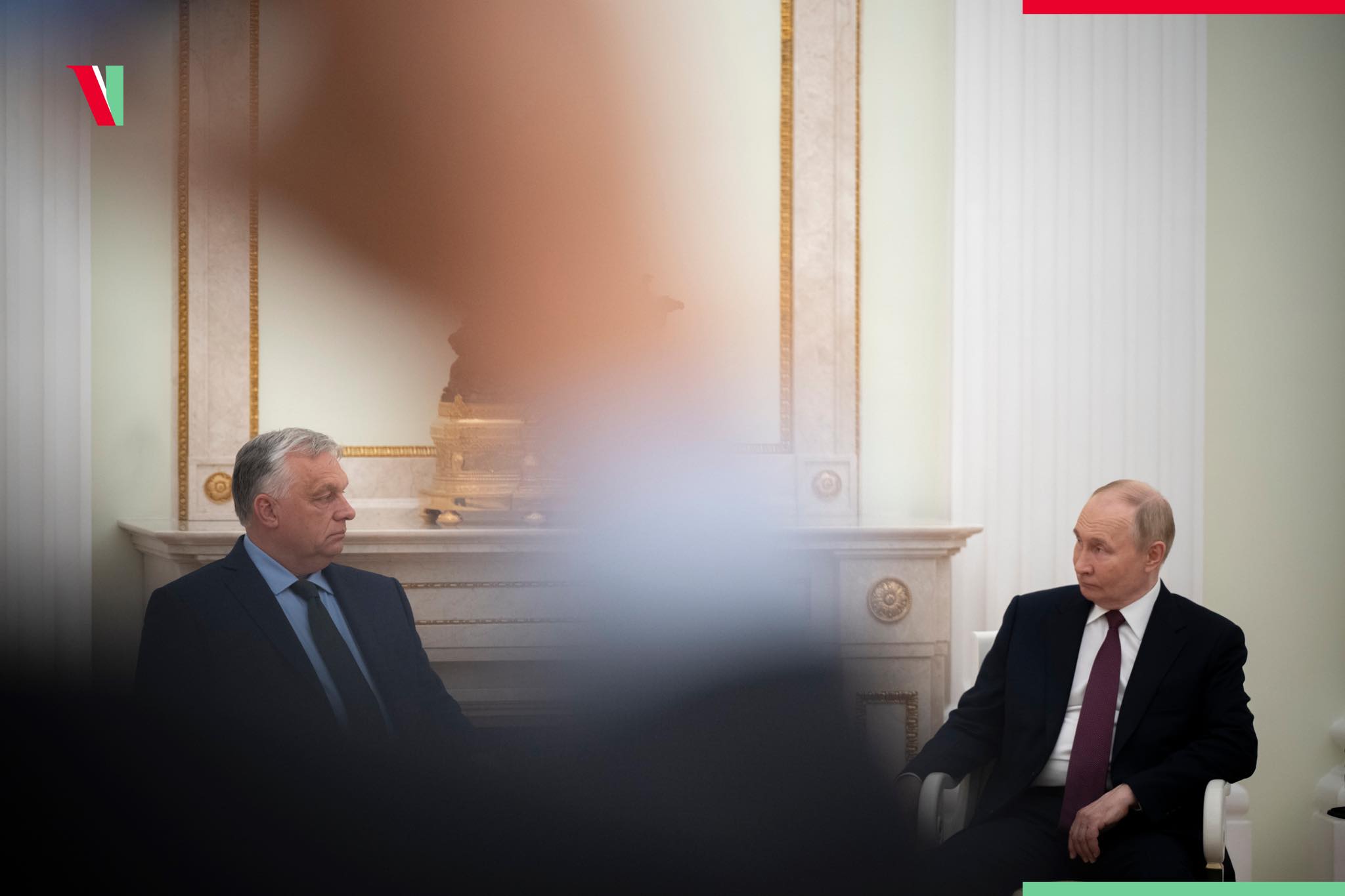
But it seems Hungary would support even more in that regard: Russia would like to spearhead building a new architecture of security in Eurasia. Lavrov said Hungary is interested in that, along with Slovakia. FM Szijjártó participated in the 2nd International Conference on Eurasian security in Minsk, “after which Russia and Belarus called for developing the Eurasian Charter of diversity and multipolarity in the 21st century”, TASS wrote.
“The conference in Minsk was attended by the Foreign Minister of Hungary (Péter Szijjártó – DNH), Slovakia displays its interest as well. I believe that other countries will see a direct benefit from this in terms of promoting their long-term interests and satisfying the needs of their people”, Lavrov said.
They will continue even if the West dislikes the idea
Lavrov highlighted that the West is displeased with the initiative, but Russia would continue nevertheless.
“Regardless of whether the West wants it or not, the process of building a new architecture of security is moving forward full steam, and is already based not on the Euro-Atlantic concept, but on the understanding that the single Eurasian continent currently provides opportunities for everyone to equally safeguard everyone’s interests and build the very indivisible security, which was proclaimed in the OSCE, but was destroyed by the actions of the West. First and foremost, thanks to NATO’s reckless eastward expansion”, Lavrov concluded.
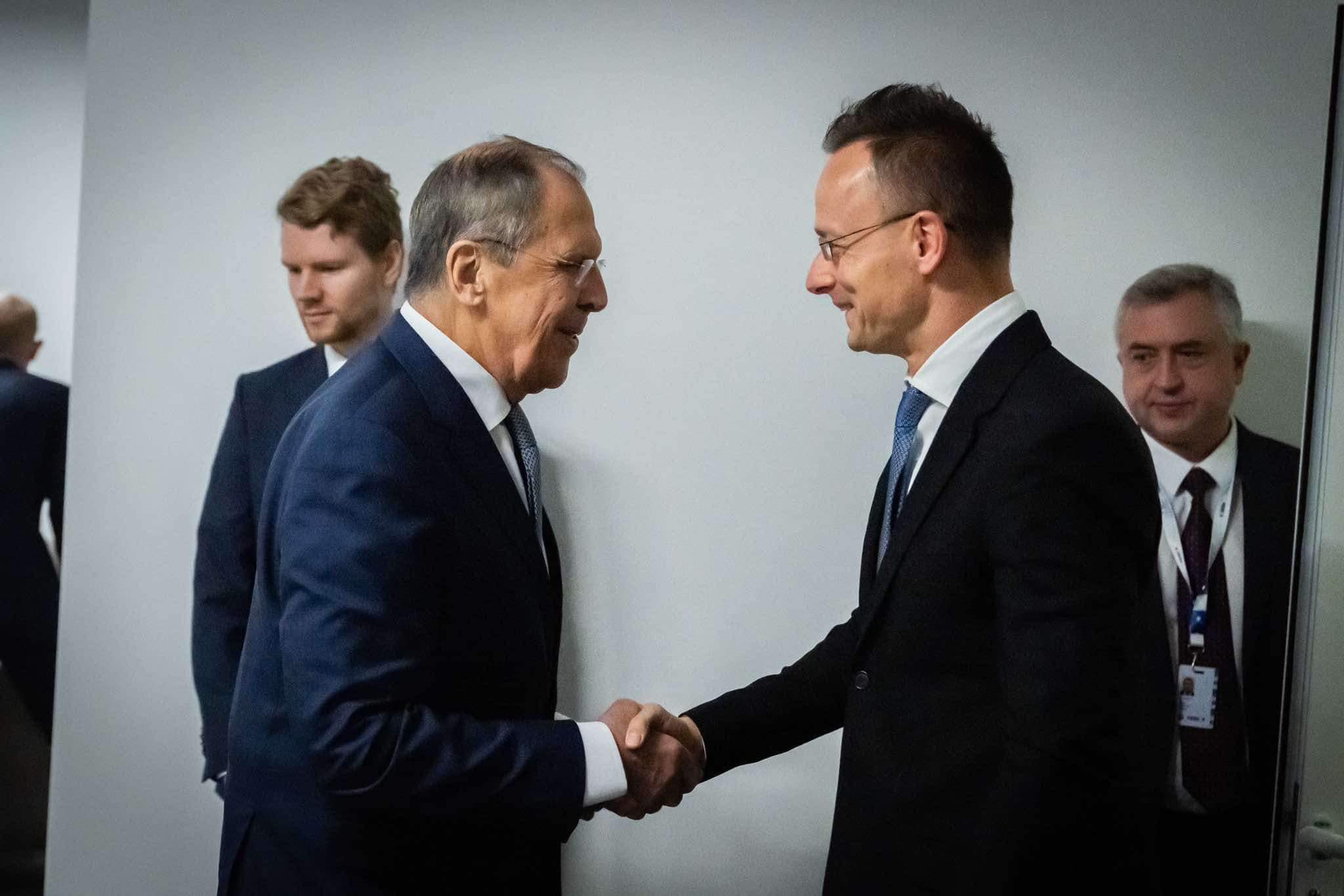
Portfolio.hu wrote that the Hungarian foreign ministry has not commented on the issue. Before, PM Orbán and other government officials regularly cleared that Hungary’s pro-NATO commitment was unquestionable.
PM Orbán decorated “Mr Russia”
On Thursday in the Carmelite Monastery, Prime Minister Viktor Orbán awarded the Middle Cross of the Hungarian Order of Merit to Klaus Mangold, owner-managing director of Mangold Consulting GmbH and former chairman of the Executive Board of DaimlerChrysler AG, Bertalan Havasi, the Prime Minister’s press chief informed the Hungarian news agency MTI. The decoration was conferred upon Mr Mangold in recognition of his outstanding contribution to the strengthening and development of Hungarian-German economic relations.
Direkt36 discovered more about the controversial relationship between the Hungarian prime minister and the German businessman. First, they wrote that Mr Mangold was regularly referred to as “Mr Russia” in the German press due to his extensive network in the Russian political and business elite.
János Lázár introduced Mangold to Orbán
According to the media outlet, János Lázár, a hunting partner of Mangold, introduced the German businessman to Orbán in 2012. Afterwards, Mangold played a role behind the scenes in smoothing the preparations of the Russian-Hungarian negotiations over the Paks nuclear power plant expansion project.
Furthermore, European Commissioner Günther Oettinger travelled from Germany to Budapest on his private jet in 2016. Later, it was revealed that Mangold has a contract and a regular payment from Budapest covering multiple issues from digitalisation to the promotion of electric cars. After the 2018 elections, nine contracts were signed with Mangold’s company in various areas from helping facilitate German-Hungarian industrial cooperation to attracting foreign companies.
Rosatom subsidiary VP: Paks NPP expansion will cost more
According to index.hu, Aleksandr Merten, the VP of the Rosatom subsidiary Atomstroyexport, said the prices were defined by inflation, the damaged supply chains, the growing costs of building materials, and illegal migration. He said Paks II would supply electricity from the beginning of the 2030s. However, its EUR 12.5 billion cost could increase.

Furthermore, the deadlines may also change since the European Commission monitored the state support of the project for 2.5 years. He added that German Siemens would deliver the automatised control system of the plant. If they refused to do so, Russians would partner with the French. Laying concrete will start next March, and the Hungarian supplier rate may exceed 40%. Mr Merten said 150 Hungarian companies were working on the expansion project.
Read also:
- Russia’s vision for Ukraine in 2045 might include Hungary – What’s the endgame for Moscow?
- FM Szijjártó continues peace mission: he negotiated with Lavrov in Malta
FM Szijjártó continues peace mission: he negotiated with Lavrov in Malta

Péter Szijjártó, the foreign minister, had talks with his Russian and Vatican counterparts on Thursday on the sidelines of the OSCE foreign ministers’ council meeting in Valletta.
After talks with his Russian counterpart, Sergei Lavrov, Szijjártó pledged to continue pursuing the “Hungarian peace mission”, saying the war in Ukraine may be closer than ever in light of the US presidential election, yet the risk of escalation was now at its peak.
To ensure that peace remains viable by January 20, “everything must be done now to keep the channels of communication open,” he said in a Facebook post, adding that the Organisation for Security and Cooperation in Europe was the “last suitable forum” for this.
Instead of encouraging Ukraine to lower the conscription age, “we should work towards a ceasefire and peace,” he added.
In July, PM Viktor Orbán went on a ‘peace mission’ to Kyiv, Moscow, Beijing and Mar-a-Lago after he took over the presidency of the Council of the European Union. He got criticism that he did not have authorization to make such a move. Later, it became clear that he informed NATO and EU allies about his plans beforehand. Orbán has been communicating about anti-peace and pro-peace blocks ever since.

Meanwhile, referring to a meeting with Paul Richard Gallagher, his Vatican counterpart, Szijjártó said Hungary highly valued the Holy See’s “wise, pro-peace” position.
He said they were in agreement that striving for peace was “not a sign of weakness but of courage”. “Archbishop Gallagher encouraged us to pursue our efforts to save lives, establish peace and keep the channels of communication open,” he said.
Szijjártó added that Christian communities around the world were being persecuted, “and this must be stopped”. He said the atrocities against Christians in Aleppo were especially worrying.
“Hungary will carry on providing humanitarian aid with a view to protecting Christian communities facing hardships,” he said.
Read also:
- Ukrainian county inhabited by Hungarians, Transcarpathia, under Russian attack – read more HERE
- PM Orbán: war in Ukraine can only be lost with Zelensky’s plan
Szijjártó in Washington: Hope for Ukraine peace hinges on US leadership transition
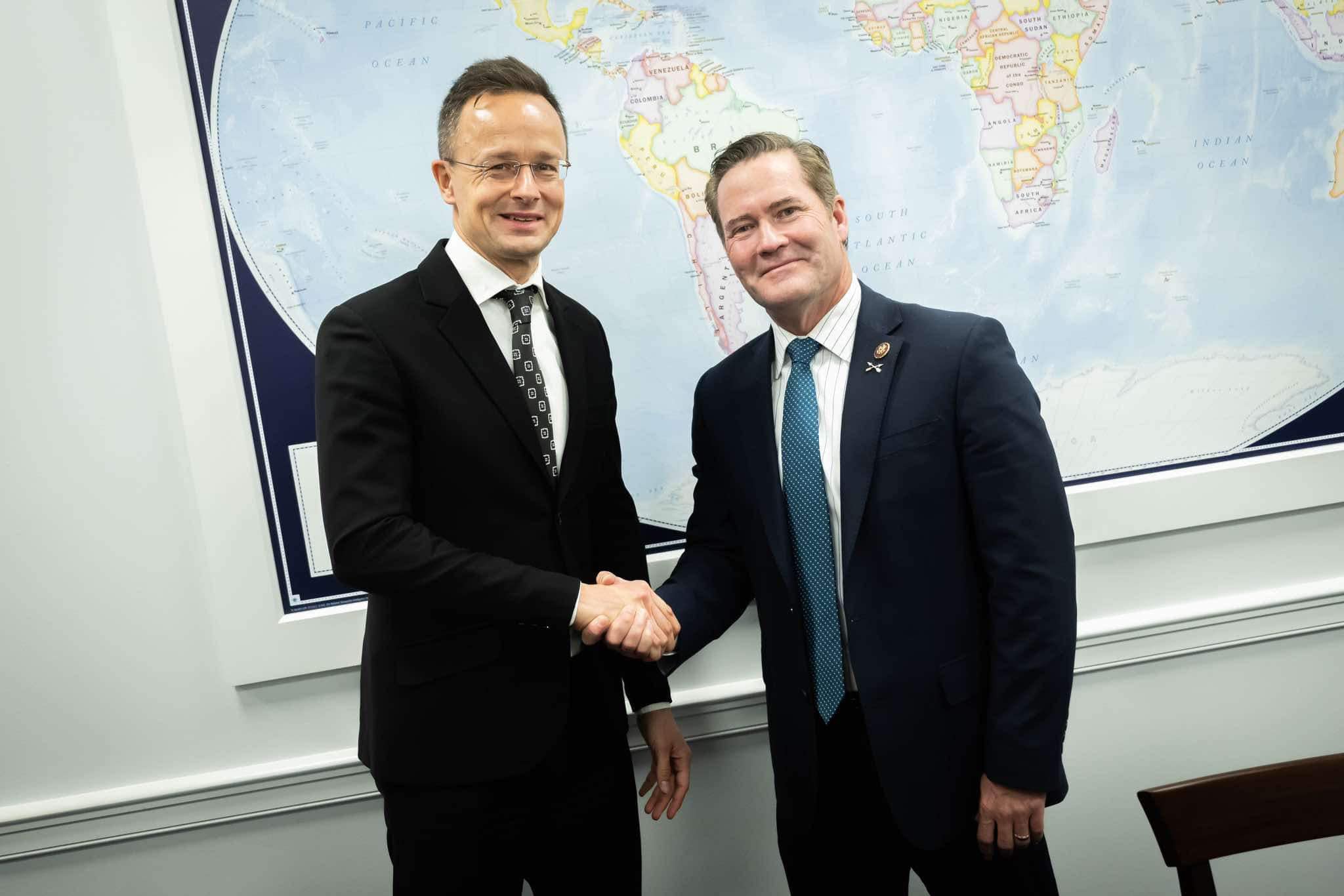
In the wake of the US presidential election, an end to the conflict in Ukraine seems closer than ever, even as the danger of escalation is the greatest yet as “the outgoing US administration is trying to make brokering peace after 20 January impossible”, the minister of foreign affairs and trade said in Washington, D.C., late on Wednesday.
According to a ministry statement, Péter Szijjártó met House Representative Mike Waltz, a Republican for Florida tapped to serve as national security advisor in the incoming administration headed by Donald Trump, and welcomed that the post would go to a member of the Congressional Hungarian-American Caucus.
Szijjártó said the “friendly talks” touched on geopolitical issues including the war in Ukraine. “It is no coincidence that the issue of the war in Ukraine, whether to end it or continue it, was one of the most important questions in the US presidential campaign, and while Donald Trump said clearly he wanted to end the war, Kamala Harris fought for continuing it.”

He said Hungary was “rooting for Donald Trump’s aim to conclude the war quickly to become reality”, and said that keeping channels of communication open was extremely important.
Regarding US-Hungarian relations, Szijjártó said “the fact that US Republicans and we Hungarian patriots have similar, and occasionally perfectly aligned, views on the most important issues of world politics” would be certain to give a stable foundation to a renewed relationship.
He pointed to the fight against illegal migration and the protection of borders and sovereignty as examples. “We want to base our policies on common sense, family is a priority for both administrations, and we both speak the language of peace.”
The most important “takeaway” of the talks with Waltz was that “we speak the language of peace and that the risk of escalation is as clear for the US as it is for us, in the neighbourhood of the war,” Szijjártó said.
At the meeting of NATO foreign ministers in Brussels earlier this week, the incumbent US Secretary of State had a “very different approach”, Szijjártó said. He lamented that 8 member states have yet to boost their defence spending to 2 percent of GDP. NATO also requires that 20 percent of that be ploughed into modernisation and new purchases; in Hungary, that ratio is at 48 percent. “That is one way we contribute to NATO’s strength,” he said.
Read also:
Hungary requests US exemption for Russian Gazprombank sanctions to secure gas payments
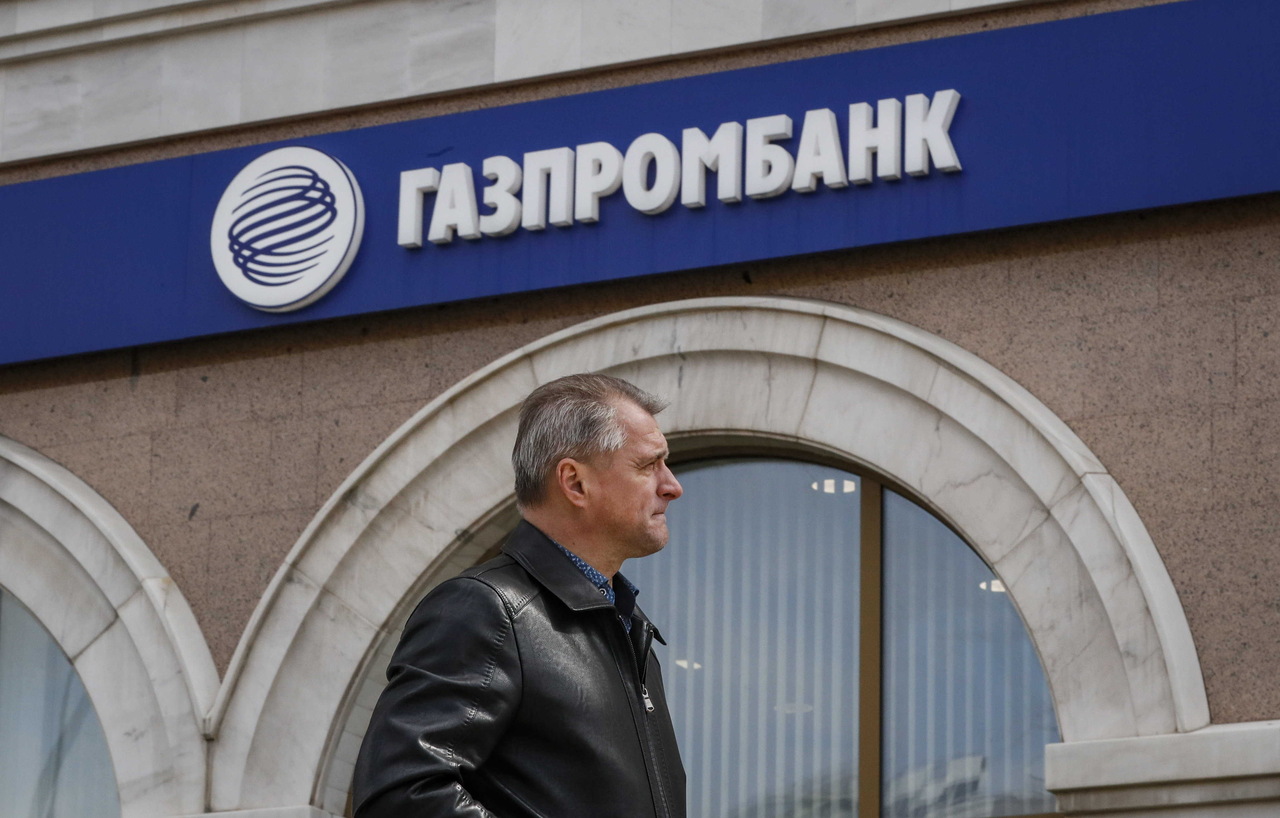
The Hungarian government has requested that United States authorities exempt Russia’s Gazprombank from sanctions to allow countries in the region to pay for their gas deliveries, Minister of Foreign Affairs and Trade Péter Szijjártó said in Brussels on Wednesday.
Fielding questions from journalists after a meeting of NATO foreign ministers, Szijjártó said that the United States’ chief diplomat had signalled a willingness for some form of consultations with allies on the sanctions affecting Gazprombank.

“It would have been better if this had happened before…but that’s how things turned out,” he added.
Szijjártó said the new sanctions on Gazprombank could cause serious difficulties for Hungary and two other NATO members, as well as for Serbia, as any stoppage in imports of Russian gas would threaten the security of their energy supplies.
“I have indicated to the American secretary of state that this is the kind of measure that could cause trouble for allies,” he added.
Szijjártó said the government had submitted a request to the relevant US authority on Tuesday asking for an exemption from the sanctions in the case of payments for gas deliveries. Such an exemption would not be without precedent, he added, noting that a number of Russian banks, mainly ones involved with the trade of Russian uranium, had received similar exemptions.
Szijjártó said he had consulted on the matter by phone with the energy ministers of Serbia, Slovakia and Türkiye, with whom coordinated steps would be taken.
Hungary ensures one-third of Ukraine’s imports of electricity and will continue to do so in future, too, he added.
Read also:
Hungarian man violates sanctions against Russia, receives fine

A man from Sándorfalva (close to Szeged) was fined for attempting to import car parts worth HUF 35 million (EUR 84.5 thousand) from Russia in violation of EU sanctions imposed due to the war in Ukraine. The accused, who tried to conceal the Russian origin of the goods by involving a Belarusian company, admitted his guilt and reached a settlement with prosecutors. He was fined HUF 1 million (EUR 2,400), ordered to pay additional legal costs, and had the parts confiscated.
A man from the Szeged region faced charges on Wednesday for violating sanctions imposed on Russia, after he attempted to clear a shipment of car parts worth HUF 35 million, originating from Russia, through customs in October 2022. The parts were intended for free circulation, which would have allowed them to be sold and used in Hungary, Szegeder reported.
Hungarian man tried to bypass sanctions
The accused, identified as M. M., tried to conceal the Russian origin of the goods by introducing a Belarusian company into the supply chain. This act violated EU sanctions against Russia, which were enacted due to the ongoing conflict in Ukraine. These sanctions, as per the 833/2014/EU regulation, prohibit the purchase, import, or transfer of goods to the EU that could generate significant revenue for Russia, thereby enabling destabilising actions in Ukraine.
M. M., a seasoned trader with decades of experience in importing car parts from foreign companies to Hungary, had developed ties with various international businesses, facilitating the importation of goods from Russia. During the investigation, a settlement was reached between the defence and the prosecution. The prosecution suggested a fine of HUF 1 million, the confiscation of part of the evidence, and the payment of legal costs.
The defendant, acknowledging his guilt, agreed to the terms of the settlement. The Szeged Court approved the agreement, confirming the HUF 1 million fine, the confiscation of the car parts, and the payment of additional criminal costs amounting to approximately HUF 56,000 (EUR 135).
Read also:
- Hungarian minister: We are working with the Russians on a solution to avoid US sanctions 🔄
- POLITICO: The price MOL would accept to abandon Russian oil in Hungary
Featured image: depositphotos.com



